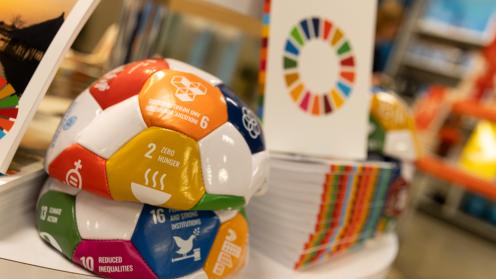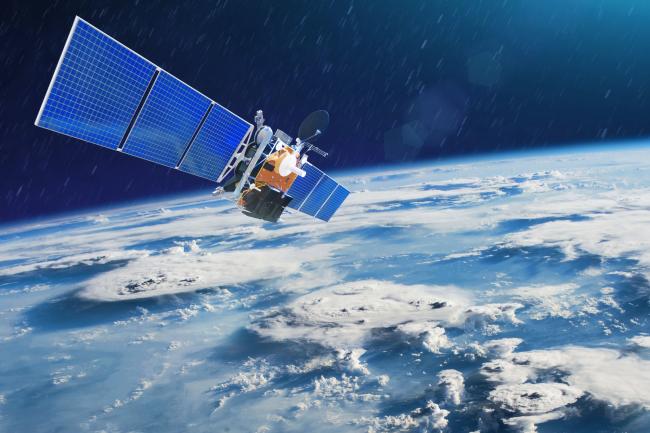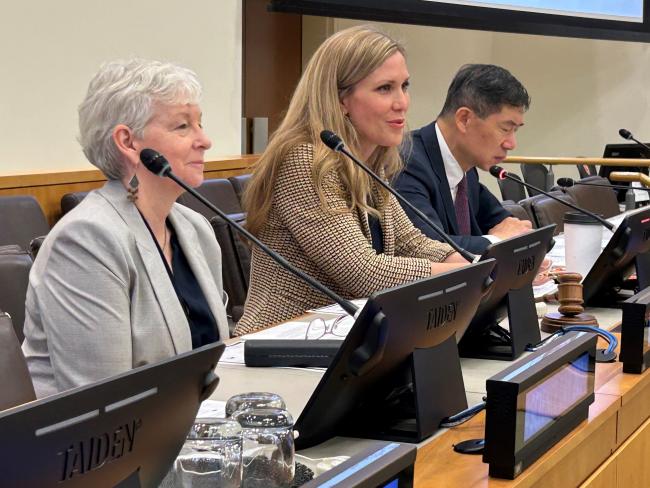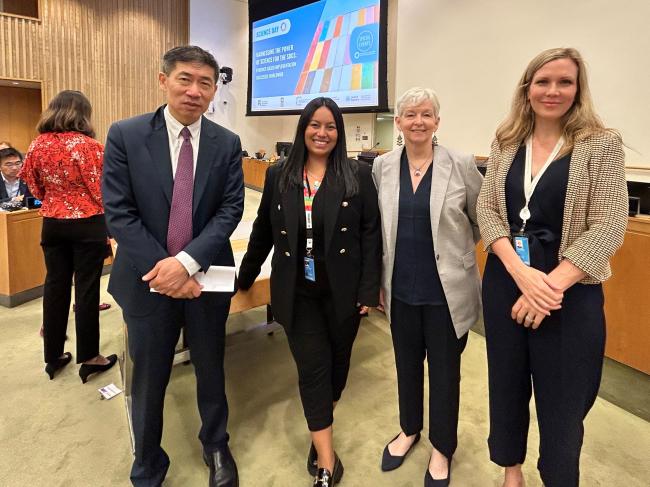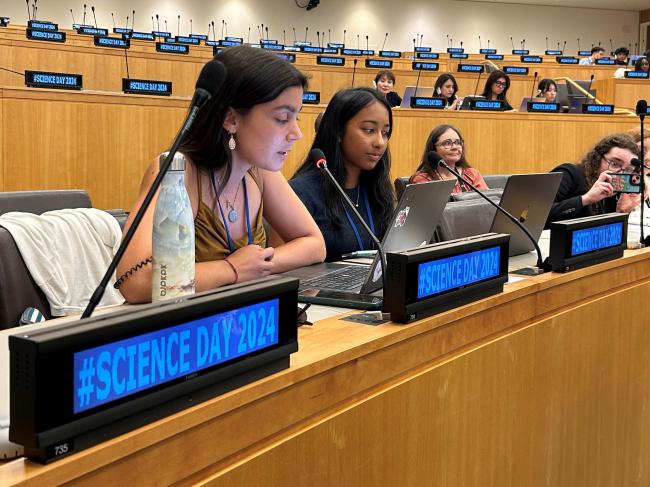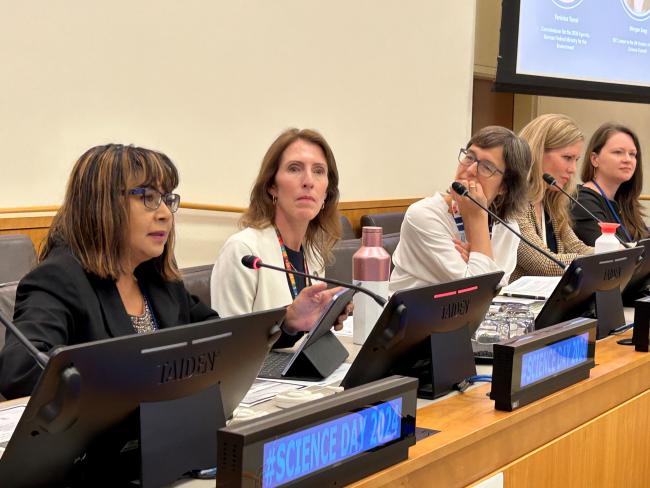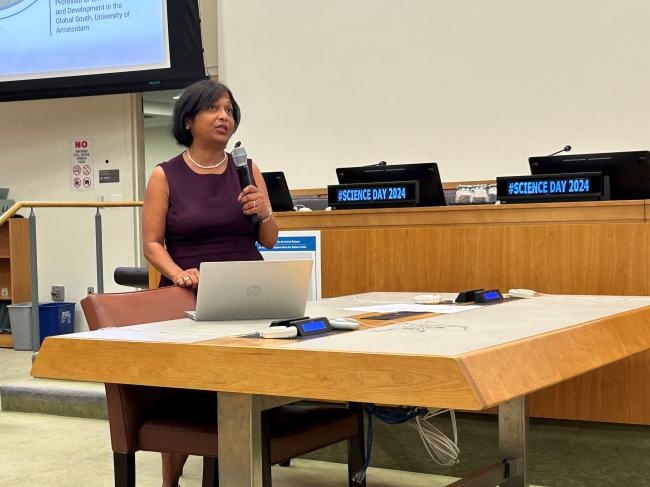About
Participants at the HLPF special event identified steps to make science more interdisciplinary and mechanisms to enhance the science-policy interface to accelerate SDG implementation.
Final report
Summary report 9 July 2024
All coverage
The second edition of Science Day featured dialogues on strategies and case studies for accelerating SDG implementation while ensuring it is as evidence-based, strategic, and effective as possible.
Co-moderator Laurel Patterson, UN Development Programme (UNDP), opened the session calling on participants to bring precision in their discussions on how we can best address the opportunities, successes, and possibilities to scale solutions for SDG implementation.
Haoliang Xu, Associate Administrator, UNDP, discussed where opportunities lie for the strategic use of science for SDG decision-making, and noted that the SDG governance targets are the most frequently mentioned entry points for implementing the SDGs.
Ko Barrett, Deputy Secretary-General, World Meteorological Organization (WMO), called for extending science in three directions:
- across disciplines, because interconnected science is necessary “to see our solutions;”
- across the “full science and policy decision chain,” to translate science into information that practitioners can translate into policy, and to ensure more policy makers are conversant in science; and
- across diversity and inclusion, noting “if you want to solve a complex problem, you don’t bring the same people from the same university to examine” it.
Barrett closed noting that “brilliance exists in every corner, but resources to support that brilliance are unequally distributed.”
Speakers during the three-hour event highlighted the need to have scientists study policy makers and provide “real time” studies on how integrated policy planning may be creating new spillover effects or whether policy makers are missing out on opportunities. The role of the Global Sustainable Development Report (GSDR) in informing implementation, and the fact that authors for the 2023 edition found there were more scientific studies on SDG interlinkages available than when the previous edition was drafted, was highlighted as evidence that researchers are looking closer at the SDGs and their interlinkages.
Many speakers emphasized the role of human capital in SDG implementation. The need to incorporate the social sciences, and not just the physical sciences, into research was also stressed. A speaker highlighted the need for training for those who must moderate cross-disciplinary teams and collaboration among ministries. Youth speakers highlighted the need to adopt human-centered Artificial Intelligence guidelines. They also highlighted the importance of partnerships that empower youth.
Speakers also discussed mechanisms for science-policy interfaces. One speaker noted that international processes have developed science-policy interfaces such as the Intergovernmental Panel on Climate Change (IPCC) and suggested that national governments should adopt related structures. Participants also discussed the need for better communication of scientific findings, and a recognition that politics often intervene between scientific findings and policy adoption. Another speaker emphasized the need for brokers – those who are at the center of the science-policy interface and can help facilitate communication.
Co-moderator Ivonne Lobos Alva, Stockholm Environment Institute (SEI) Latin America, chaired presentations of case studies of science in action. Presenters discussed:
- a SDG certification scheme in Japan, which works with small- and medium-sized enterprises and divides sustainability into stages, with steps identified for achieving certification;
- air pollution research that identified context-specific challenges for gathering and interpreting data;
- opportunities to use behavioral science to raise the voice of scientists;
- the value of developing a consortium to support a government request for support of its goal to reduce food import bills by 25% by 2025; and
- the role of training as healthcare becomes more technologically dependent.
Speakers emphasized the need to engage in the September 2024 Summit of the Future and the 2025 Financing for Development conference and were encouraged to return for Science Day 2025.
Science Day 2024 was co-convened by SEI, UNDP, the Sustainable Development Solutions Network (SDSN), the International Science Council (ISC), and the UN Department for Economic and Social Affairs (DESA). It took place as a special event on the side of the 2024 meeting of the High-Level Political Forum (HLPF), at UN Headquarters in New York, US.
To receive free coverage of global environmental events delivered to your inbox, subscribe to the ENB Update newsletter.
All ENB photos are free to use with attribution. For Science Day at HLPF 2024, please use: Photo by IISD/ENB | Lynn Wagner.
